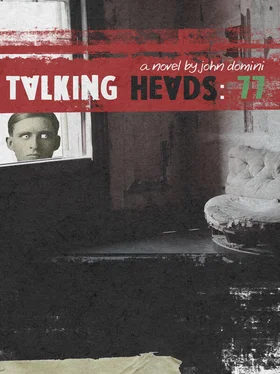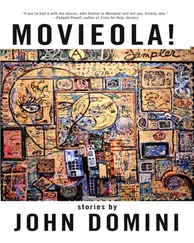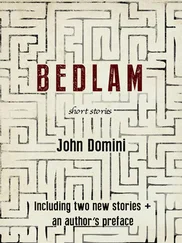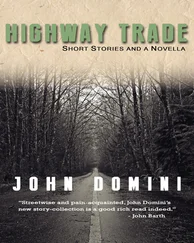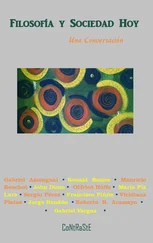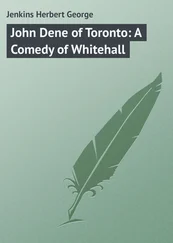John Domini - Talking Heads - 77
Здесь есть возможность читать онлайн «John Domini - Talking Heads - 77» весь текст электронной книги совершенно бесплатно (целиком полную версию без сокращений). В некоторых случаях можно слушать аудио, скачать через торрент в формате fb2 и присутствует краткое содержание. Год выпуска: 2015, Издательство: Dzanc Books, Жанр: Современная проза, на английском языке. Описание произведения, (предисловие) а так же отзывы посетителей доступны на портале библиотеки ЛибКат.
- Название:Talking Heads: 77
- Автор:
- Издательство:Dzanc Books
- Жанр:
- Год:2015
- ISBN:нет данных
- Рейтинг книги:4 / 5. Голосов: 1
-
Избранное:Добавить в избранное
- Отзывы:
-
Ваша оценка:
- 80
- 1
- 2
- 3
- 4
- 5
Talking Heads: 77: краткое содержание, описание и аннотация
Предлагаем к чтению аннотацию, описание, краткое содержание или предисловие (зависит от того, что написал сам автор книги «Talking Heads: 77»). Если вы не нашли необходимую информацию о книге — напишите в комментариях, мы постараемся отыскать её.
Talking Heads: 77 — читать онлайн бесплатно полную книгу (весь текст) целиком
Ниже представлен текст книги, разбитый по страницам. Система сохранения места последней прочитанной страницы, позволяет с удобством читать онлайн бесплатно книгу «Talking Heads: 77», без необходимости каждый раз заново искать на чём Вы остановились. Поставьте закладку, и сможете в любой момент перейти на страницу, на которой закончили чтение.
Интервал:
Закладка:
Kit was nodding. It took a long moment to recall that his uncle couldn’t see him, to work up to his own responses. He admitted he’d forgotten. He hadn’t even stopped to think what time it was out West. And for another few minutes Kit commiserated about the day’s bombshell from brother Pete. It came easy — he knew what the man wanted to hear. Les, Pete’s still the same guy he’s always been. Les, he wouldn’t have told you if he didn’t care about you. He needs you.
What the man wanted to hear, though, was the best Kit could manage. There over the waiting yellow page, he had a lot of work waiting, drafting longhand till midnight or beyond. All he could spare for Uncle Les was a brisk wrap-up, but this did mean he didn’t have to say another word about wanting his mother.
Yet even once he was off the phone Kit went on staring, thinking of the dead. If the phone hadn’t rung again, and if it hadn’t been another crank call — a serious jolt even though the caller made no noise, no groan — Kit might never have gotten started on his testimony.
Chapter 10
How about this — an actual newspaper. The pages crackling as he turned them, the ink getting into his fingers. The voices remained the same, too, column after column: declarative voices, conservative, every sentence squaring another to help box in some squirming cell of evidence. An actual mainstream newspaper. Kit had swung out of bed early, fired up about his draft, his finished testimony. In thick boot-socks he’d shuffled down to the freezing stoop to meet the boy with the morning Globe . Beside his unplugged kitchen phone he took time to read, while coffee reopened the nerve-ends in his bruises.
Nobody had anything new on Monsod. Grand Jury subpoenas so far were straight out of Casablanca: Round up the usual suspects. Fire and emergency personnel, prison security, those clowns Ad and Amby. Kit saw his own name on the list again. Attached, the tag “unavailable for comment.” The Jury had called a couple of prison inmates as well. These weren’t the howlers down in solitary, the steel-shivered voices who’d turned Kit round and round. Rather the Jury would cross-examine “convicts assigned to the penitentiary workshop at the time of the disturbance.” And that was some progress, at least. That meant big media realized Monsod’s trouble had started in the workshop. They’d learned something since Thursday night, the garbage Kit had seen on TV. Nonetheless, so far the closest the investigation had come to the root problem — guys, the walls are caving in — was a subpoena for the standards supervisor on the original project. Aw, the guy was a family hire. Responsibility for keeping Monsod up to code had been foisted off on an emeritus professor at Boston College whose last construction experience had come after the hurricane of 1938.
Nothing new. Nothing better. To judge from the Tuesday wrap-up, Kit’s own eight- and ten-week-old research still had him a step ahead of the pack.
My. Are we proud? Are we?
Not particularly. Kit sat reading in his last clean suit. His trenchcoat hung over a chair, belt-tip on the linoleum, the reassembled gun bulky in one pocket. He was returning to the office as soon as he was done with his reading, his thinking. He needed to negotiate something different with Leo, and after that with Louie-Louie, but neither of them would be in before ten. Kit would have time even to turn the gun in to the police in Central Square. They took weapons no questions asked.
No, what Kit read this morning didn’t make him proud. Rather he still felt the way he had since finishing up last night, flarey and quick, bristling with ideas.
The Globe , much as he’d rushed to get it, to read it, also looked like just another paper sampler. On this table, at least. Kit turned the wide, crackling pages across the loose pink tongues of phone-memos, and across Bette’s black-&-white printout. If you saw the letter out of the corner of an eye, and against the staid design of the Globe to boot, Bette’s work appeared all ratty line breaks and hyperactive punctuation. Plus there was Kit’s work, his statement for Asa Popkin. A draft in the blocky mix of script and print he’d been using since he was a teenager, it was the most vivid thing on the table. Blue fountain pen on yellow legal paper.
Eyewitness testimony, far tougher going than the morning news. Kit had only made it through four of the five W’s, before his handwriting broke down sometime after midnight. It wasn’t fatigue that stopped him, though. It was that fifth W itself. Who, What, When, Where — he got through those in plenty of time, with energy to spare. But then came the fifth, Why. Then came Kit’s heady return to the Cottage beach, the moil of the Wood’s Hole crossing. As he’d told Bette, on that beach, first he had to direct the question towards himself. Why? Why had this happened, who did he think he was? In the winter fog that was his testimony, a good six or eight possible Kit Viddichs flickered. Kit the cowboy, there was one. The cowboy who couldn’t adjust to city life, indoor life. Or there was Kit the caveman throwback, never more than a hot evolutionary minute away from bloody murder. The new women’s magazines would like that one. Kit the crazy man flickered out there, too — an easy guy to spot, lately. And there was always, of course, Kit the klutz.
Oh , Bette said now, in his coffee-brightened head. Kit the wit .
He’d trusted none of them, finally. How could he trust these ghost rationale, ghost selves, fluttering in and out of his mind’s eye like a newspaper flying apart in a storm? In the end, as his handwriting broke down, Kit had dummied his fifth W. He’d fallen back on a mockup testimony, with mockup words like “self-defense” and “in the confusion.” Of course he admitted what he’d done. He admitted he’d hit the man a second time. When, Where. The coroner’s report, Kit wrote, would corroborate. And he went on to point out what else the coroner would corroborate. The city media had gotten Junior’s death wrong, Kit wrote, and they’d been perpetuating their mistake since last Thursday.
He went on to nail every bad guy in sight. The overhead pipes for instance, the way Garrison and the inspectors pussyfooted around any mention of the overhead pipes, that was no mystery. That was as simple as gravity: Water doesn’t run uphill. As simple as muscle power: Junior couldn’t possibly have pulled out an iron chain bolted to the wall, not even on drugs — unless the bolts were weak to begin with. The BBC inspection had actively avoided the real problem. They’d invited Kit along to make it look otherwise, CYA. But the real problem remained, the seepage from overhead, seepage that had loosened connections and softened materials all over E Level. And the faulty plumbing ran back up through D Level. Through the workshop. Conditions must’ve gotten so bad that, last Thursday morning, one of the cons had finally done something desperate.
No mystery, none of it. Kit named as well the man behind the entire bogus operation, Forbes Croftall. The Senate majority whip had the means. He had deep connections with both the construction industry and the Building Commission. And Monsod had gone up during his tenure, a project of the ‘60s.
The inspection was a sham , Kit wrote, and the motive no doubt goes back to the original contracts .
Strong words. And then this morning, Kit found the Senator in the Globe . In the “State House Notebook,” Kit found an item that some muckrakers would’ve taken for corroboration. Croftall had announced he was getting a divorce. Calling it quits after a marriage of twenty-eight years, the majority leader had read a prepared statement.
Читать дальшеИнтервал:
Закладка:
Похожие книги на «Talking Heads: 77»
Представляем Вашему вниманию похожие книги на «Talking Heads: 77» списком для выбора. Мы отобрали схожую по названию и смыслу литературу в надежде предоставить читателям больше вариантов отыскать новые, интересные, ещё непрочитанные произведения.
Обсуждение, отзывы о книге «Talking Heads: 77» и просто собственные мнения читателей. Оставьте ваши комментарии, напишите, что Вы думаете о произведении, его смысле или главных героях. Укажите что конкретно понравилось, а что нет, и почему Вы так считаете.
